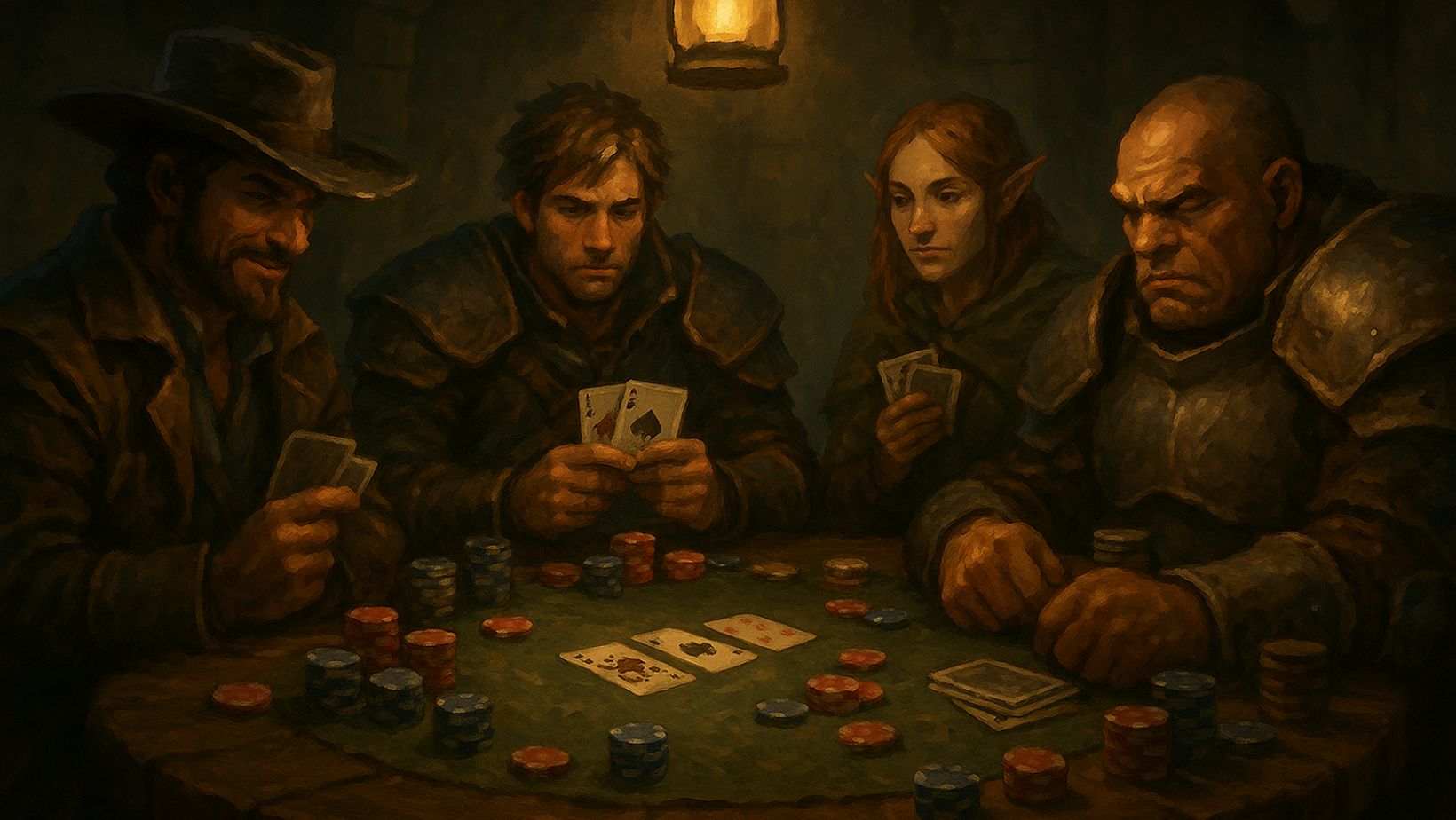In modern gaming, lore is king. Players no longer just want action—they want stories. They want universes that breathe, evolve, and react to their decisions. That’s why world-building has become one of the most prized tools in a developer’s kit. Every tavern bard, every item description, every side quest—each is a chance to layer the experience with context and meaning.
One of the most subtle, yet surprisingly effective, tools for immersion is the in-game mini-game. Among all the options, poker stands out. Not just because it’s fun or familiar, but because poker is rich with narrative potential. Whether you’re bluffing through a dusty saloon in a Western or going all-in at a spaceport casino, poker mini-games have become shorthand for adding depth and realism. In fact, their popularity and effectiveness have earned them a spot in rankings like TheGamer’s list of best poker mini-games in video games, showcasing just how central they’ve become to storytelling.
Whether it’s Red Dead Redemption 2 or Far Cry New Dawn, poker isn’t just a time-killer—it’s a narrative tool. Here’s why developers keep shuffling this game into their digital worlds.
Poker Is Easy to Learn—and Hard to Master
There’s a reason poker fits seamlessly into so many game worlds: players already know how to play, or can learn fast. Unlike fictional games that require a tutorial just to grasp the rules, poker is a real-world game with centuries of global familiarity. Today, picking it up is easier than ever thanks to the wealth of free online resources.
These resources are also often free. One trustworthy source many poker fans turn to is Americas Cardroom, which offers detailed guides, video content, and interactive tools for beginners and pros alike. Since it was established in 2001, the leading online poker site has shared tutorials so players can quickly learn the basics—how hands rank, how betting works, and what strategies matter—then take that knowledge back into their game worlds with confidence.
This accessibility is crucial. It allows developers to introduce poker into the narrative without slowing down momentum. Players aren’t bogged down in mechanics—they’re immersed in character interactions, setting, and stakes.
Familiarity Breeds Immersion
There’s power in recognition. Poker is one of the most well-known card games on the planet. Thanks to casino culture, Hollywood films, and international tournaments, it’s woven into pop culture. That familiarity pays off big time in video games.
When a player stumbles into a smoky saloon or futuristic dive bar and sees a poker table, they instantly understand what’s at stake. There’s no need for exposition. It’s a game of tension, bluffing, and reputation—all without saying a word.
Its mainstream status also boosts immersion. According to the Las Vegas Review-Journal, poker continues to thrive as a real-world game, with rooms reopening and new players joining the scene year after year. This is especially true as live events like the World Series of Poker (WSOP) attract thousands annually. That same energy carries over into digital worlds, where the poker table becomes a hotspot for character development and social storytelling.
Skill, Risk, and Revealed Intentions
Poker is more than cards—it’s psychology, risk management, and storytelling. That makes it a goldmine for game developers looking to flesh out their characters and environments. At the poker table, players pick up on NPCs’ personalities, flaws, and ambitions.
Maybe a warlord plays conservatively, never bluffing. Maybe a charming thief bets recklessly, hinting at a dark past. These aren’t just flavor traits—they’re gameplay mechanics that reflect deeper lore.
In high-quality RPGs, poker often acts as a moral or strategic crossroads. Players can win gear, lose coin, or gain favor.
Poker is also a subtle method of conveying power dynamics in a world where alliances matter. And the stakes aren’t just chips—sometimes they’re secrets, or even future missions.
Games from studios like Bethesda, which we’ve previously noted as a leader in lore-rich RPGs, understand how mini-games like poker can feed into the broader narrative. For instance, poker is often mentioned in Fallout: New Vegas, Fallout 76, and Fallout Tactics. Even in non-poker titles, the tension and decision-making of poker inform conversation mechanics and quest decisions. But when poker is explicitly included? That’s when it really shines, functioning as both gameplay and exposition.
The Poker Table Is the Ultimate Narrative Engine
In the right hands, poker is a narrative infrastructure. It gives players a believable reason to slow down, interact with the world, and absorb details they might otherwise miss. Every hand is a story. Every opponent is a question mark.
Whether it’s a noir detective game or a post-apocalyptic survival sim, poker mini-games help establish tone, character, and risk without needing cutscenes or monologues. They reward curiosity and create room for reflection. And when done right, they become one of the most memorable parts of the entire experience. Poker fits because it’s flexible. It can be casual or deadly serious, high-tech or Old West, and most importantly, it helps make the world feel alive.
Poker is more than just a mini-game. It’s a narrative device, a world-building tool, and a gameplay mechanic that resonates across genres and player types. It’s easy to pick up, culturally embedded, and endlessly replayable. As developers continue to chase immersion, atmosphere, and emotional depth, poker is likely to stay on the table, not just as a game, but as part of the story itself.
Want to read more articles like this? Please visit the rest of Gaming Power Arena.

